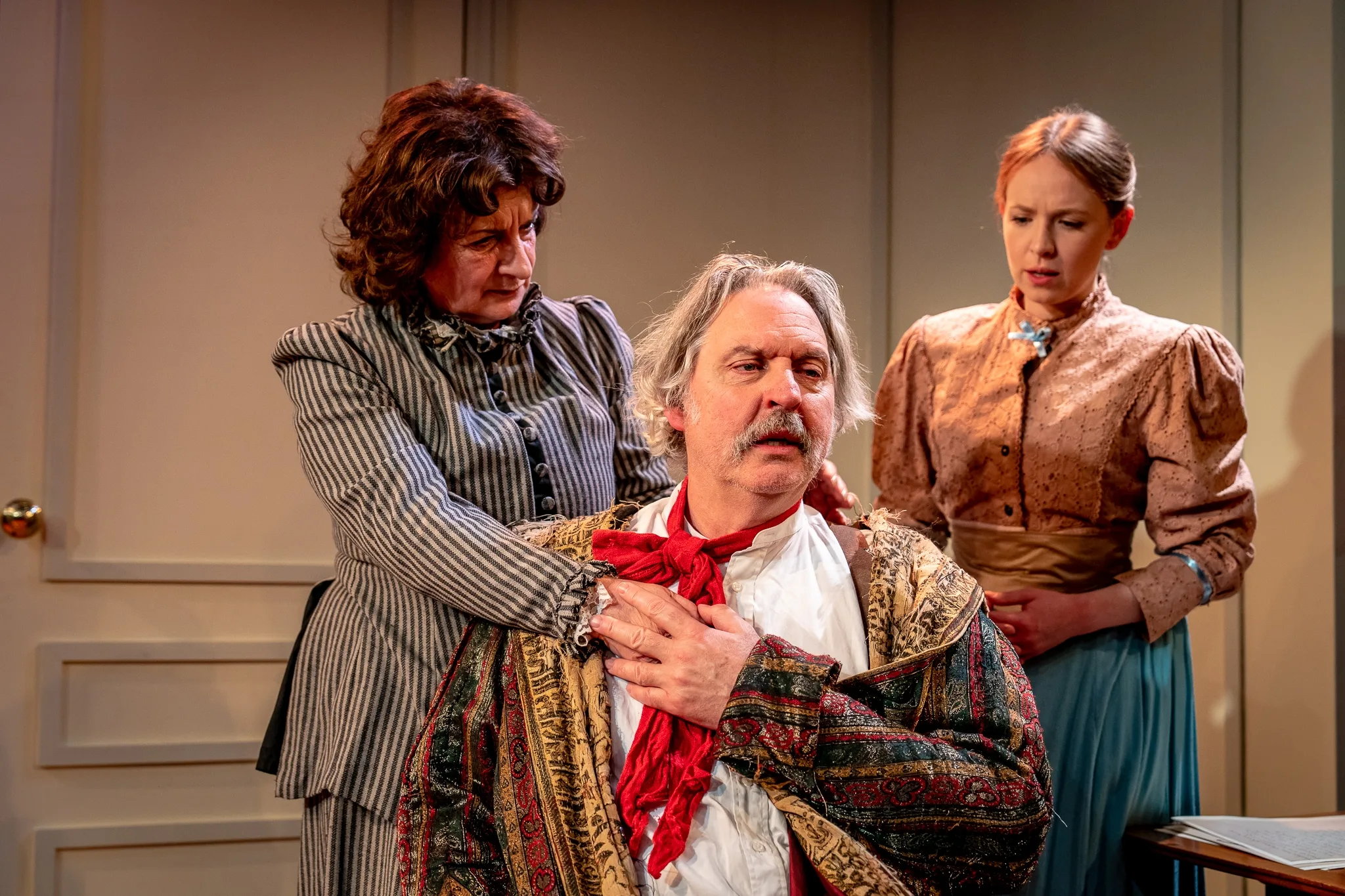Norma Atallah Bob Barrett and Rosalind Lailey in The Oyster Problem at Jermyn Street Theatre. Photo: Steve Gregson
Show: The Oyster Problem
Society: London (professional shows)
Venue: Jermyn Street Theatre. 16B Jermyn Street, St. James’s, London SW1Y 6ST
Credits: BY ORLANDO FIGES. DIRECTED BY PHILIP WILSON
The Oyster Problem
3 stars
When I was working for my O.U. degree in the 1980s, and studying the Enlightenment, the teaching included an execrable short film. It proposed a dinner party (which never happened) at the court of Frederick the Great. The idea was to give us an easy handle on what the likes of Voltaire, Diderot and co actually thought. All it did in my case was to make me giggle at its awfulness but I suppose it provided a job for a few D-list actors.
I was reminded of all this by the first act of The Oyster Problem. It’s far better (it could hardly be worse) than that weary old OU effort but there’s a whiff of similar contrivance. Flaubert, Turgenev Zola and Georg Sand are in a café in Paris – introducing themselves as well as making us aware of their problems, issues and points of view. It is trying very hard not to be clumsy.
Flaubert and Turgenev, almost contemporary in age, were actually close friends and met a lot in the 1870s to share oysters among other things. They were sometimes later joined by the younger Zola. Sand – the only one of these four writers I haven’t read – was nearly a generation older and probably better known today for her long liaison with Frederick Chopin in the 1840s than for anything she wrote.
The problem with this play is that a lot of the dialogue has been adapted from letters. Orlando Figes is a historian and this is his first play. Sometimes it feels more like people making long, often clunky, statements than having a conversation. And that inhibits the actors. It’s also too long.
Bob Barrett does very well though with his forceful, often rude Zola, whose bladder problems are – apparently – well documented. He finds plenty of pugnaciousness blended with confidence in his own ongoing success along with genuine concern for and kindness towards Zola. Somehow his broad Scots accent helps to stress his difference from the others.
Giles Taylor galumphs about the stage being infuriating as Flaubert who is a one hit wonder (Madame Bovary), a profligate spender (oysters!) and now threatened by bankruptcy. Rosalind Lailey is sweet and anxious as his painter niece and Norma Atallah presents the voice of common sense as Sand.
Full marks to Isabella Van Braeckel for her imaginative set and costumes. The absurdly flamboyant, tatty Prospero-type robe Flaubert insists on wearing at home is splendid and as for the pale green dress worn by Lailey – where can I buy one? The set – never easy in Jermyn Street’s very restrictive playing space – ingeniously gives us white shutters which open to reveal the windows of Flaubert’s home. Closed they suggest the bare walls of a restaurant or railway station.